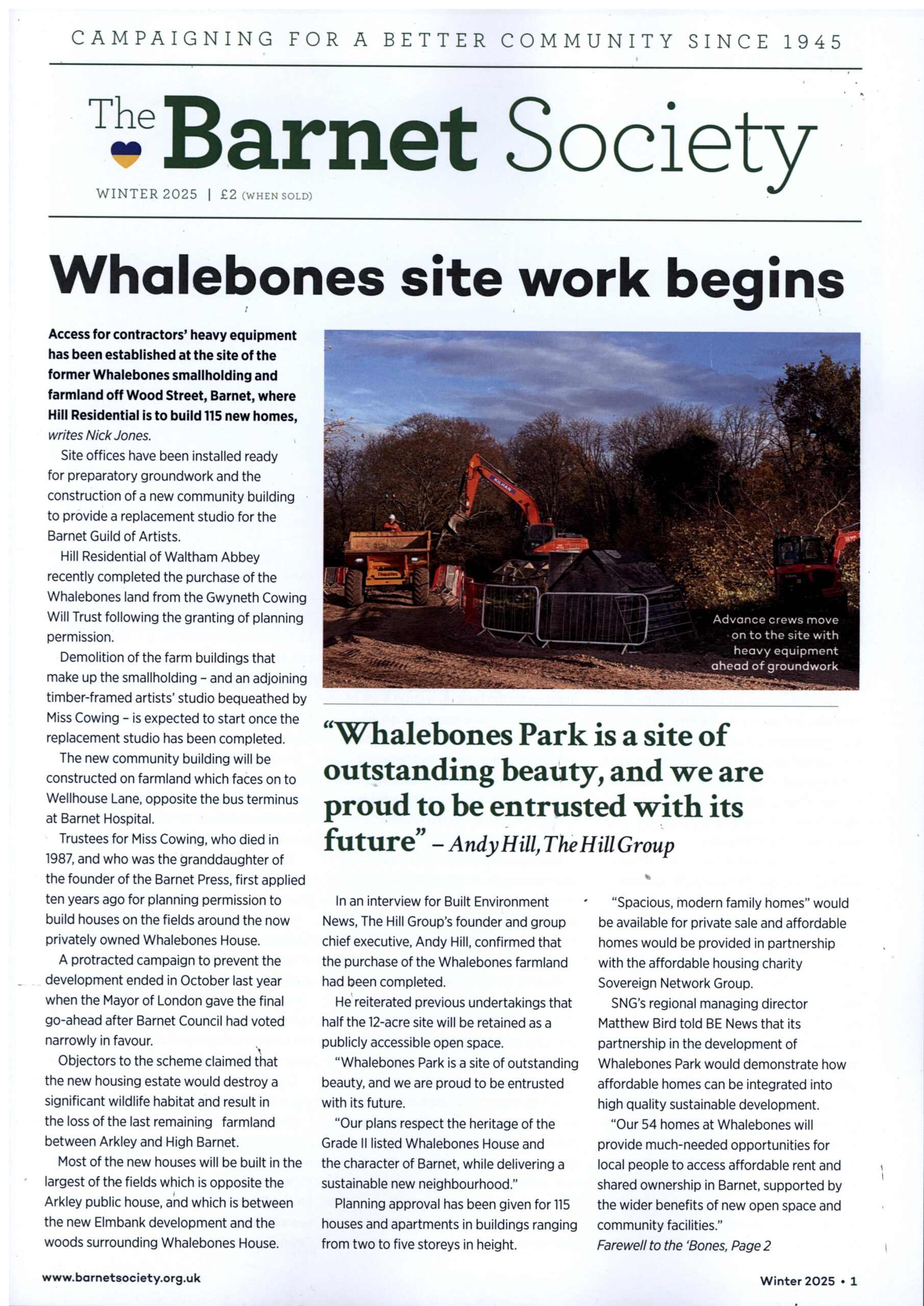Barnet trained-solicitor who became a top government lawyer advising Prime Minister Margaret Thatcher during the Falklands War
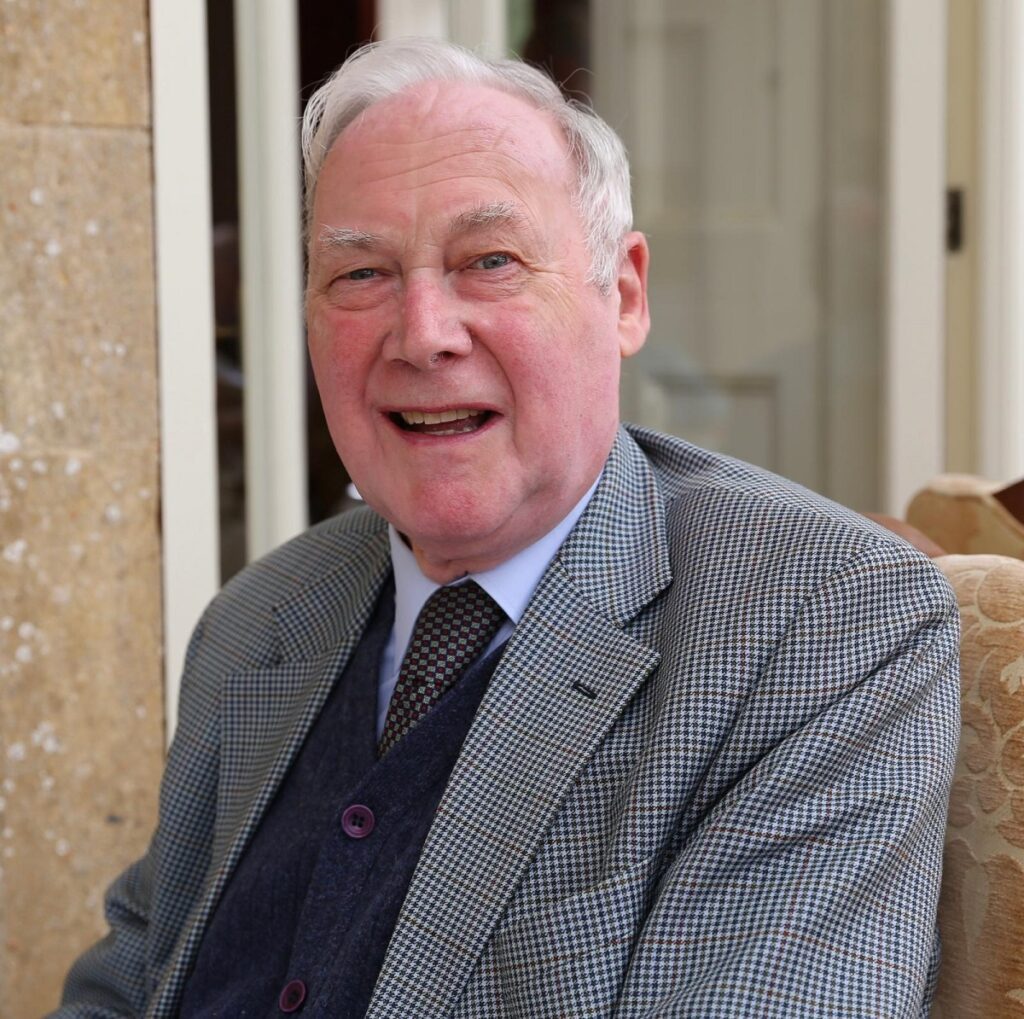
Barnet Parish Church was host to family, friends and neighbours – as well as numerous eminent lawyers – for a service of thanksgiving to celebrate the life of former Treasury Solicitor Sir Gerald Hosker who gave Margaret Thatcher critical legal advice at key points during her Premiership.
There could hardly have been a more fitting location for his fellow churchgoers and the wider community to commemorate the achievements of a Barnet-trained solicitor who went on to serve as the government’s top lawyer.
A few steps away from the front door of St John the Baptist is the Wood Street office of the Barnet solicitors’ practice where he was employed for five years as an articled clerk.
Sir Gerald, who died last year at the age of 91, was born in Finchley and became a lifelong resident of Barnet.
Renowned for his discretion, he took one secret to the grave.
Only after his death 11 months ago did his wife and family discover that during his National Service, he became a spy for MI5.
Sir Gerald’s career-making moment was the day he worked under Mrs Thatcher’s watchful eye as he put the final touches to a legal document authorising the seizure of Argentinian assets during the Falklands War – a move which the Prime Minister announced during an emergency Saturday sitting of the House of Commons.
After signing the document in 10 Downing Street, and before heading off for the debate, the Prime Minister expressed her relief: “Oh Gerald, this is the only piece of good news I’ve got.”
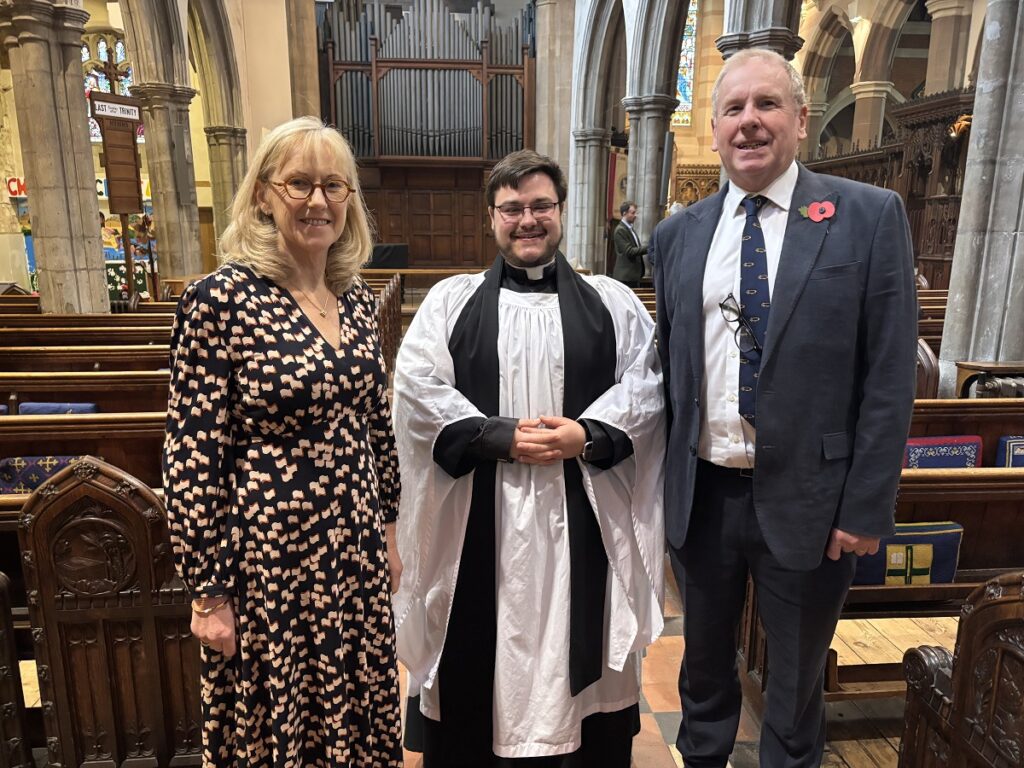
Father Sam Rossiter, the Barnet team vicar — above, with Helen and Jonathan Hosker — conducted the service of thanksgiving. It was attended by former Civil Service colleagues including Lord (Robin) Butler, cabinet secretary during Mrs Thatcher’s Premiership.
Sir Gerald was born in Finchley in 1933 and after the family were evacuated to Berkhamsted during the Second World War he went to Berkhamsted School and then the Law Society’s College of Law.
He became an articled clerk at Derrick Bridges & Co in Wood Street in 1951 and was admitted as a solicitor by the Law Society in 1956.
It was at this point, said his daughter Helen Hosker, that her father’s life story became rather “vague”.
In fact, he had been recruited by the security service MI5 and enrolled as a partner in a firm of solicitors which had attracted suspicion because of its links to the USSR.
Only recently she had challenged her father about the fact that he had been in an “exempt profession” during his national service, but it was not until one of Sir Gerald’s former colleagues, Geoffrey Claydon, prepared information for use in an obituary for The Times, that the truth was revealed.
Geoffrey, who died this year, had himself been recruited by military intelligence. The two men kept in close contact, never revealing publicly their shared secret.
Helen said her father had apparently been trained in the spying skills of the 1950s – lip reading, reading upside down, reading blotting paper, searching wastepaper bins and steaming open envelopes.
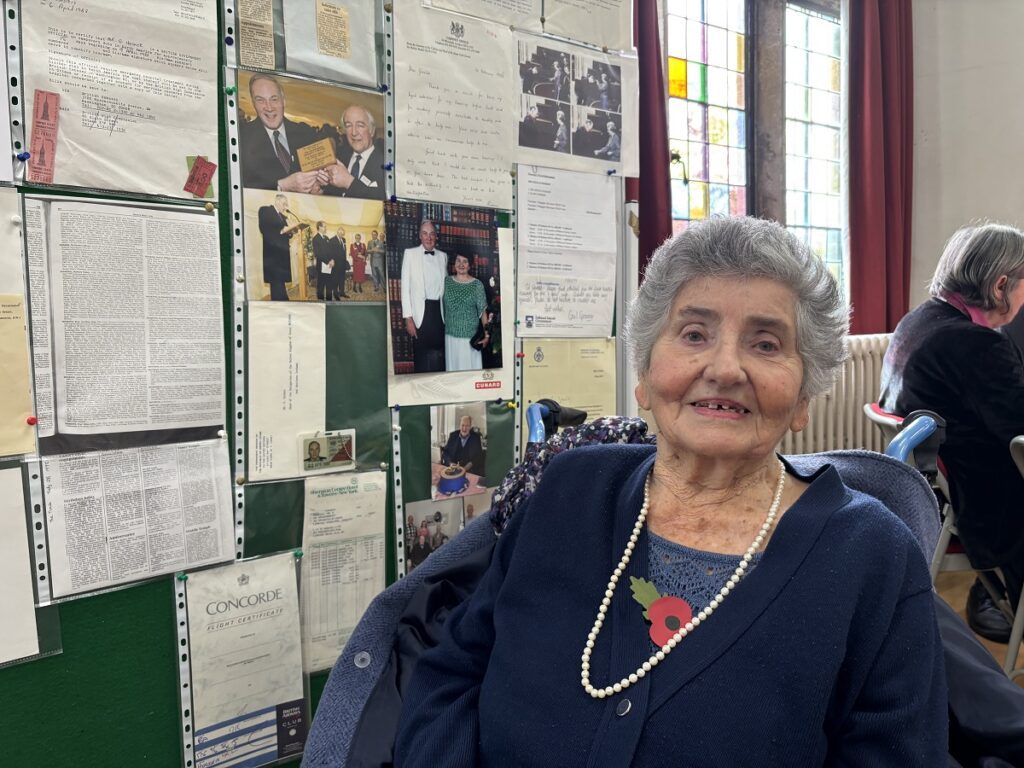
Such was his discretion that his wife, Lady Rachel Hosker (above) had no idea of his double life the day they were married in 1956 at St Mary the Virgin Church, Monken Hadley. “She had no inkling he was ever a spy.”
Sir Gerald joined the Treasury Solicitor’s Department in 1960 after working briefly for Clifford Turner & Co and after a series of promotions became under- secretary in 1982.
When the Falklands Islands were seized later that year, he was in the right place at the right time to assist Mrs Thatcher,
Helen recalled that on the Friday evening before the Saturday sitting at the House of Commons, police officers arrived at their home in Barnet telling him to report for work early next morning as 10 Downing Street had been unable to locate the Treasury Solicitor, the deputy Treasury solicitor or the Attorney General.
Rachel drove her husband to Downing Street where he found Mrs Thatcher sitting in a large chair. In anticipation of her request, he had already prepared draft legal advice on seizing Argentinian assets in the UK.
Mrs Thatcher signed the document, and while he watched the debate in the House, Helen’s mother was “in Foyles bookshop buying me some medical books.”
The following Monday Sir Geoffrey Howe, Chancellor of the Exchequer, sent him a note thanking him “for the major part he had played”.
After his promotion to deputy Treasury solicitor in 1984, he became solicitor to the Department of Trade and Industry in 1987 and was finally appointed Treasury Solicitor in 1992, a promotion which he had tried to achieve once before.
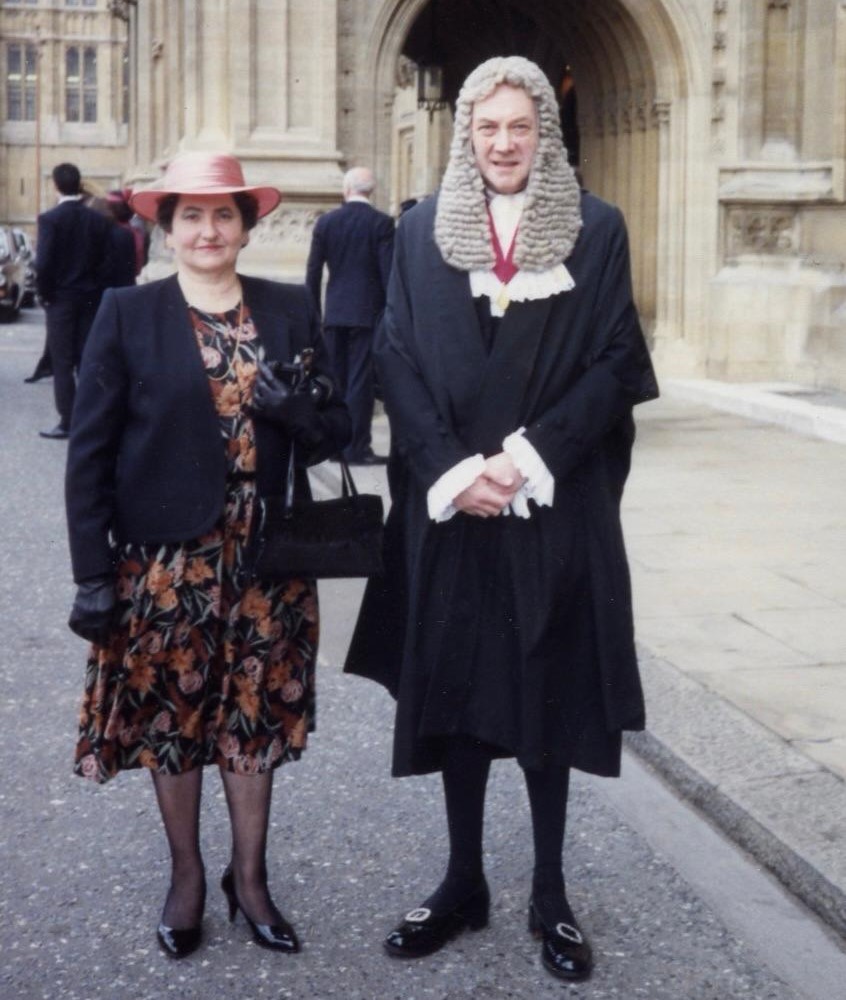
On the nomination of the Lord Chancellor, he became an honorary QC in 1991 — above with Rachel after the ceremony. This was followed by a knighthood in 1995.
In his tribute, Jonathan Hosker recalled that his father spent countless hours travelling to and from Whitehall sitting on the Northern Line, regularly falling asleep either going to work or on the way home.
One day he had woken up at High Barnet to find that the only other passenger still in the carriage had passed away.
For some reason, his father suffered from always feeling the cold – something which proved useful to the civil service before the arrival of mobile phones. One day after Sir Gerald had left an office in Whitehall, his staff wanted to contact him urgently.
“A message was sent to another office to say he was walking towards Victoria Station. How shall we recognise him? It was a lovely sunny evening and apparently the advice was, don’t worry, you’ll notice him, he will be the only man dressed in an overcoat, waist coat and hat”.
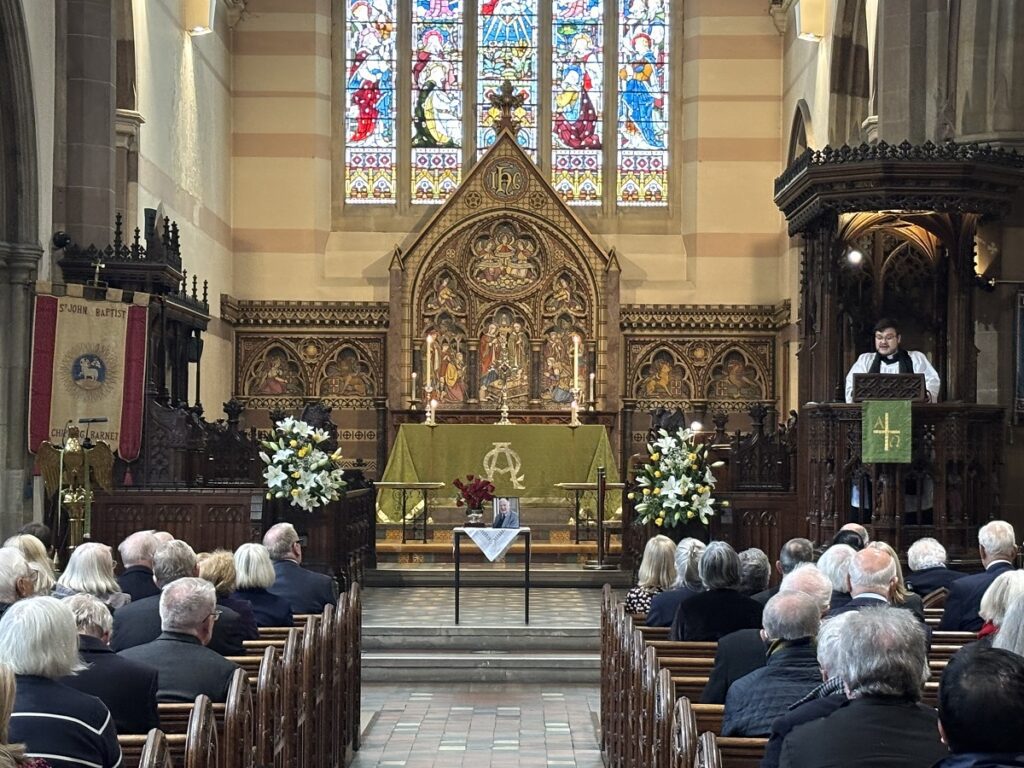
In his tribute, Father Sam Rossitter said he had built a deep relationship with Gerald and Rachel when giving Holy communion at their home in the years he was housebound.
“It is always a precious time for a priest to spend time with people whose faith inspires your own. He was a Godly man.”
Sir Gerald became a committed evangelical Christian in the 1950s after attending a Billy Graham mission in London, when he “committed his life to Jesus.”
In his entry in Who’s Who, he listed his recreations as “the study of biblical prophecy and swimming.”
After retiring from the post of Treasury Solicitor in 1995, he conducted a Several inquiries on behalf of Customs and Excise and the Department for Work and Pensions.
Other local interests included serving as a trustee at Lyonsdown School, New Barnet, where Helen and Jonathan went to school, and becoming a trustee of the Royal Air Force Museum at Hendon – a project which he had worked on himself early in his career when dealing with government conveyancing.
For some years he was a point of contact for his local Neighbourhood Watch.
On occasion he would be visited at home by Barnet police community support officers who liked nothing more than to have a chat with such a distinguished government lawyer, not realising perhaps that they were also in the presence of a former spy.

